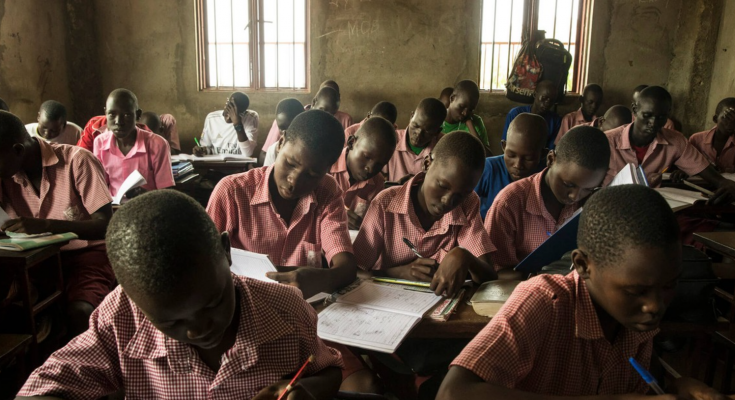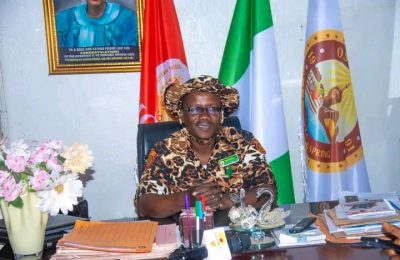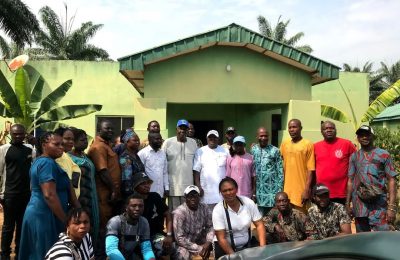

Every child deserves a quality education to unlock his or her potential. Not just this but also to liberate the mind. Whatever you aspire to become, you must be educated to navigate the world and, most significantly, your environment.
You need it to articulate your thoughts confidently and never be apologetic for them. Unfortunately, some African countries have been unable to provide quality education due to insecurity, conflict, lack of funds, and economic and political instability.

Find out more about the lowest-educated African countries discussed below:
1. South Sudan
The quality of education in South Sudan has been greatly affected by a lack of funds and inadequately qualified teachers. Flooding, conflict, and irregular payments of teachers’ salaries often delay the academic calendar. In addition, child marriage and insecurity are other major factors that continue to hinder the progress of education in the country.
2. Niger
For years now, Niger has been ranked as one of the lowest-educated African countries by the United Nations Human Development Index. Most of the population in Niger lives below the poverty line — which means parents cannot afford to buy basic educational materials such as uniforms, textbooks, and notebooks, among others. Children are also subjected to helping their families make ends meet, which restricts them from getting educated. Also, unqualified teachers and poor infrastructures contribute to the quality of education in Niger.
3. Mali
Despite the government’s effort to combat illiteracy, Mali is still faced with learning challenges due to the security crisis, violent attacks by armed groups, school equipment, and lack of infrastructure. All these have been a major setback in attaining a quality educational system. Schools get closed as well because of threats from armed groups.
4. Chad
The most prominent challenge eroding the educational system in Chad is a lack of resources. Although the government prioritizes education, it has been unable to cater to the citizens; poverty, population growth, insecurity, climate change, and conflict are quite overwhelming. Hence, children suffer—they can barely read, and some even drop out of school.
READ ALSO: West African Countries with Stronger Currencies than Nigeria
5. Central Africa Republic
The Central African Republic has been experiencing conflict, hindering peaceful development. A lot of schools have been destroyed in the process whilst armed forces occupy schools by converting them to their base. The inability to manage public schools has led to the rise of private schools — this development couldn’t curb the problem because not many can afford to pay the fees. So, no significant difference.
6. Djibouti
In Djibouti, the government has been striving to ensure the education sector is well-equipped and functional by introducing different training to help those who cannot afford to attend higher institutions. Despite their effort, the quality of education offered in schools is still very concerning. Also, there is a huge gap between the male and female in school. The latter continues to drop out, especially the ones in rural areas.
7. Burkina Faso
Even though the government allocates a large portion of its national budget to education, the country is yet to be free from attacks, killings of teachers, and disruption of learning instruments by armed groups. These constant events disrupt the flow of the school calendar, and the quality of education continues to decline.
8. Ethiopia
Ethiopia has tried to expand education access but remains one of the lowest-educated African countries. Those in the rural areas do not have access to education and the system has been criticized for lack of creativity and repetition. The lack of adequate learning infrastructure and qualified teachers is a challenge facing the education system in Ethiopia.
9. Senegal
Senegal has collaborated with international organizations to address the country’s low-quality education. The challenges eroding the system are adequate equipment, qualified teachers, and gender inequalities. Despite free public education to the age of 16, some parents do not have the financial capacity to provide learning materials for their children. Boys are more considered for school than girls. Also, early pregnancy and forced marriage hinder the progress of female education.
10. Sudan
The conflict and political instability in Sudan have greatly affected the education sector. Most especially the girls, they have become victims of sexual abuse due to the absence of protection at school and home. The country’s economic situation contributes to the government’s inability to pay teachers salaries, and parents do not have the finances to send their children to school due to the rising cost of education.








